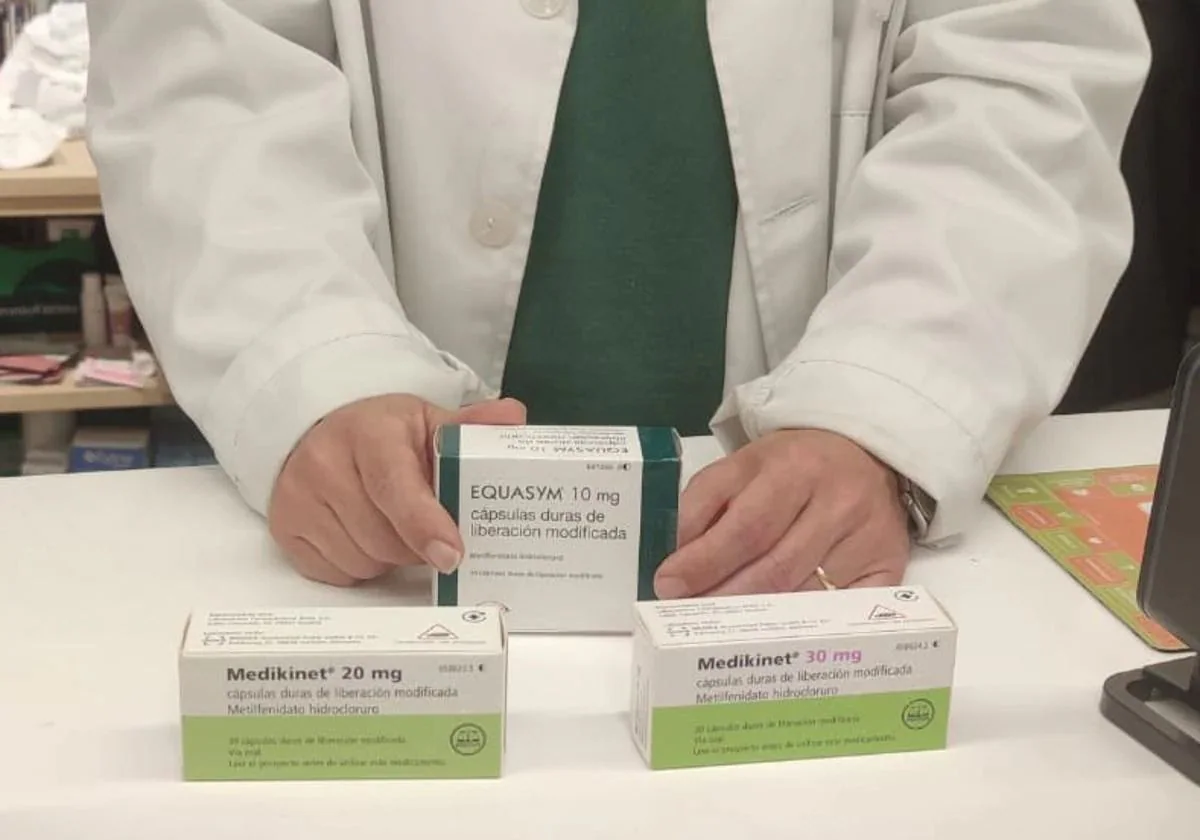Concern in Malaga over shortage of key group of drugs for ADHD patients: 'We are desperate'
The Spanish medicines agency warns that supply shortages will likely last until the first quarter of 2025
Patients with the ADHD disorder have raised the alarm in Malaga after months of suffering shortages in pharmacies of a group of drugs whose active ingredient is methylphenidate and which are used to reduce the symptoms of inattention, hyperactivity and impulsivity in children and adults with this disorder. "We are desperate," summed up Conchi Munuera, a social worker at the ADHD support association Adahimar and mother of three children with the disorder.
Concern has been growing since the beginning of the summer when it became difficult to find the prescribed medication and, above all, because it is uncertain when the supply will return to normal. According to the Spanish agency for medicines and health products (Aemps), this will be in the first quarter of 2025.
Meanwhile, stocks of this active ingredient (marketed by three laboratories under different names: Concerta by Janssen, Rubicrono by Laboratorios Rubió and Atenza by Exeltis Healthcare) are running low, as Leandro Martínez, president of the Bidafarma foundation, a wholesale drug distribution cooperative, confirmed. "At the moment, generic medicines are no longer available and, as demand for the rest increases, there is also a shortage," he said.
AEMPS recommends that, while this situation persists and "given the possibility that it may not be possible to start or continue treatment with the extended-release methylphenidate tablets", doctors should start new treatments and refer existing treatments to the methylphenidate presentations without supply problems, "provided that the patient's clinical situation allows it". But making up for the lack of one with another "is not the solution", the families warn. "Each one is released in a different way, and depending on the organism and the degree of ADHD affectation, it will work better or worse. My son did well with Concerta, but not so well with Mediquinet, both of which contain methylphenidate as an active ingredient," Munuera pointed out.
The TDAH-Axarquía association is also concerned about a situation that is dragging on for "too long". "At the moment, we have no alternative but to accept other medications prescribed by the doctor or to go to countless pharmacies until we find the one we have to take, but we can't go on like this forever," said its president, Cati Abraham. She claims that it’s a case of “when it rains, it pours,” as months before the summer there was also a shortage of atomoxetine, which is also used in the treatment of ADHD in children aged six and above, as well as in adolescents and adults. "Going out to buy medication should not become an odyssey for ADHD patients." Such is the concern of these patients that on 28 October, the Spanish federation of ADHD associations (Feaadah) decided to lodge a complaint with the Ombudsman after finding that the shortage was widespread throughout Spain.
The AEMPS attributes the shortage to several factors, "including capacity issues at manufacturing plants and a global increase in demand exceeding forecasts". It also cites "greater diagnostic rates" and warns that the problem "is exacerbated by supply issues with other medications used to treat ADHD". "In addition, there are global problems with the availability of the active ingredient methylphenidate and other materials for the manufacture of the drugs, which delays the manufacture of these medicines."
Munuera says that methylphenidate is the first thing that specialists prescribe when patients begin to be treated with medication and warns that not taking it can lead to behavioural problems and complicated situations in the social and school environment.
This is reiterated by the Spanish society of paediatric neurology, which has also expressed its concern about this situation. Its president Rocío Sánchez-Carpintero explained that many children need the help of this drug to be sufficiently "attentive, focused and reflective" to carry out educational strategies. She warned that if they do not take methylphenidate or other attention deficit drugs, they will not be able to control their symptoms and will not be able to acquire the knowledge they need to progress in their studies. "It interferes a lot in their relationships with other children, in the family environment and all of this ultimately impacts on their self-esteem," she concluded.

